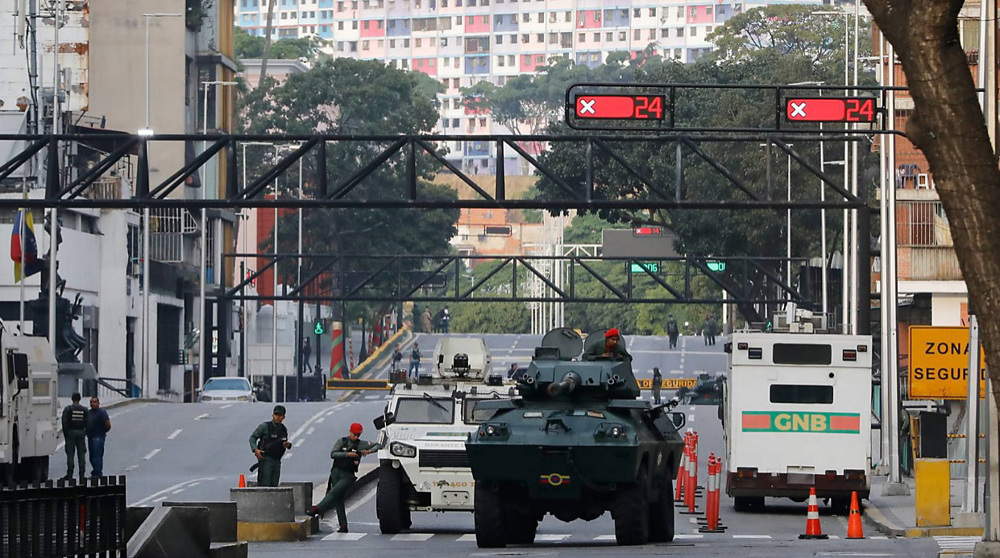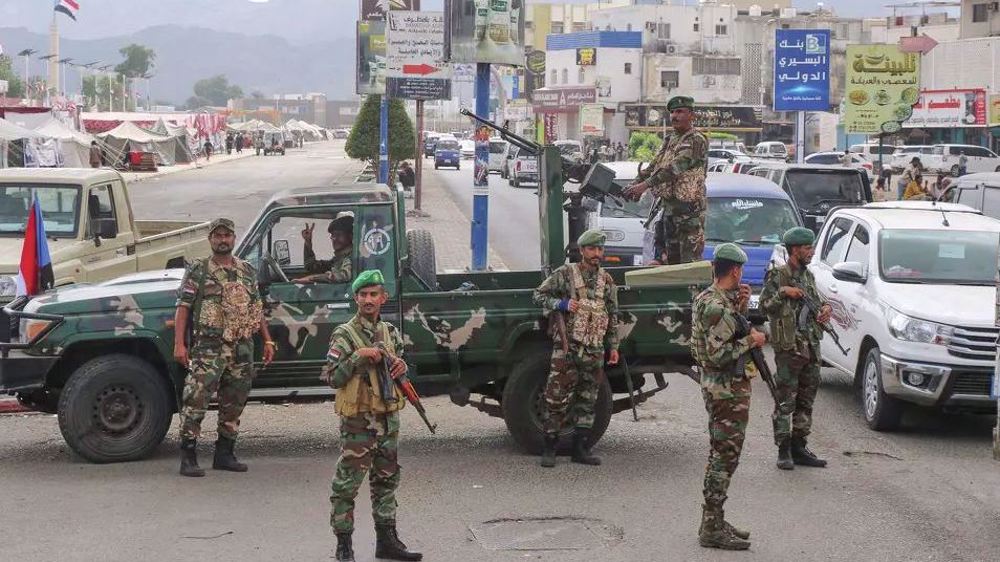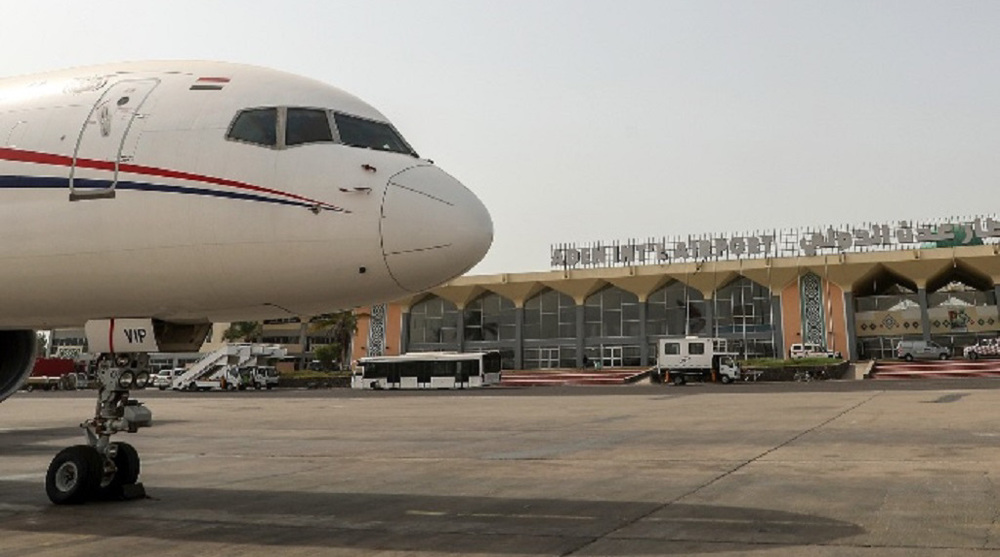Yemeni army hits Saudi camp in Najran with salvo of ballistic missiles
Yemeni army forces, backed by allied fighters from Popular Committees, have hit a military camp in Saudi Arabia’s southern Najran region with a number of domestically-manufactured high-precision ballistic missiles in retaliation for the kingdom’s campaign of military aggression against the impoverished nation.
Yemen’s Arabic-language al-Masirah television network, citing unnamed military officials from the missile unit of the Yemeni army, reported on Thursday that Bir Askar camp had been hit with short-range and solid-propellant Badr P-1 missiles late Wednesday.
It added that the projectiles had struck the designated targets with precision, inflicting heavy damage on the hardware and equipment of the base, particularly on a number of US-made Apache helicopters belonging to the Saudi army. The explosions also triggered a huge fire, leading to more damage.
In a separate report, Yemen's official Saba news agency, citing an unnamed military official, also said that one of the missiles had hit the pilots’ dormitory in the camp, killing an unspecified number of them.
Last month, the Yemeni army unveiled Badr P-1 ballistic missile, which is an upgrade of Badr-1 short-range ballistic missile, intended to precisely hit specific targets, minimize collateral damage and increase lethality against designated targets. Badr P-1 has a pinpoint accuracy of three meters, the army says.
In another development, Yemeni army troops, supported by fighters from Houthi Ansarullah movement, managed to retake several strategic positions held by Saudi-led forces in Yemen’s southwestern province of Lahij.
The major attack left a large number of Saudi-led mercenaries dead and destroyed considerable quantities of weapons and ammunition.
Furthermore, Yemeni soldiers launched an attack against positions held by Saudi-led mercenaries near the al-Alab border crossing in Saudi Arabia’s southwestern region of Asir.
The attack, which included a salvo of Katyusha rockets and artillery rounds, killed a considerable number of Saudi-led mercenaries, al-Masirah said in a separate report.
Leading a coalition of its allies, including the United Arab Emirates and Sudan, Saudi Arabia invaded Yemen in March 2015 in an attempt to reinstall former president Abd Rabbuh Mansur Hadi, who had resigned amid popular discontent and fled to the Arab kingdom.
The aggression initially consisted of a bombing campaign but was later coupled with a naval blockade and the deployment of ground forces to Yemen.
Since the onset of the imposed war, the Yemeni army, backed by fighters from the country’s popular Houthi Ansarullah movement, has been defending the impoverished nation against the brutal aggression. The coalition is also resolute to crush the movement as another goal in its war on Yemen, which is teetering on the edge of famine.
More than three and a half years into the war, Saudi Arabia has achieved neither of its objectives. Riyadh had declared at the start of the invasion that the war would take no more than a couple of weeks.
The Saudi-led war has also taken a heavy toll on the country’s infrastructure, destroying hospitals, schools, and factories. The UN has already said that a record 22.2 million Yemenis are in dire need of food, including 8.4 million threatened by severe hunger. According to the world body, Yemen is suffering from the most severe famine in more than 100 years.
A number of Western countries, the United States and Britain in particular, are also accused of being complicit in the ongoing aggression as they supply the Riyadh regime with advanced weapons and military equipment as well as logistical and intelligence assistance.
VIDEO | Press TV's news headlines
Hamas: Israel escalating ceasefire violations in Gaza
Venezuela's government declares unwavering unity behind Maduro
VIDEO | Global outcry over Venezuela president abduction
Iran keeps wheat import subsidies despite cutting other food supports
Venezuelan military stands with acting president after US kidnapping of Maduro
VIDEO | Press TV's news headlines
VIDEO | Protesters in Toronto slam US kidnapping of Venezuelan president
















 This makes it easy to access the Press TV website
This makes it easy to access the Press TV website